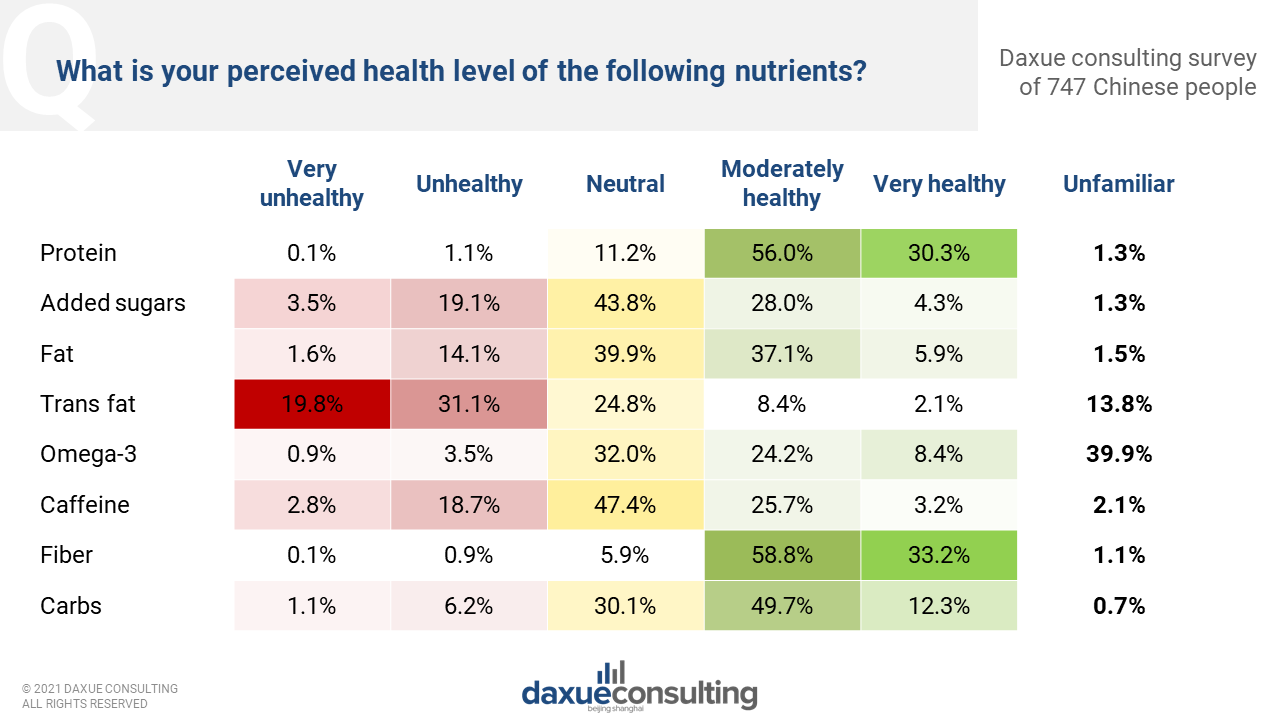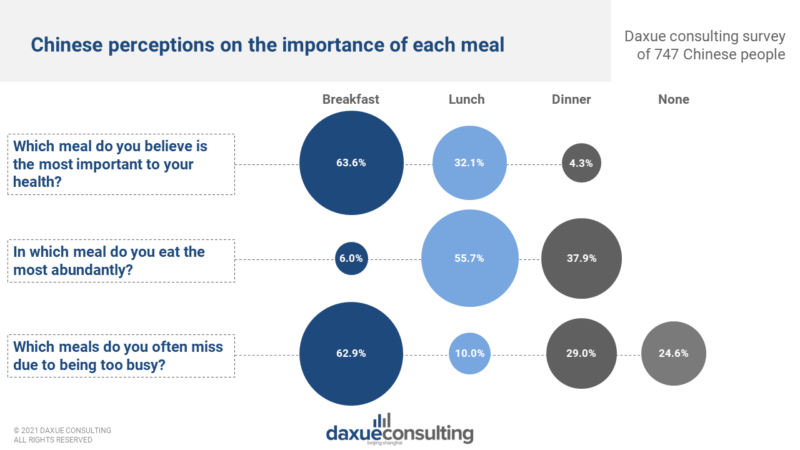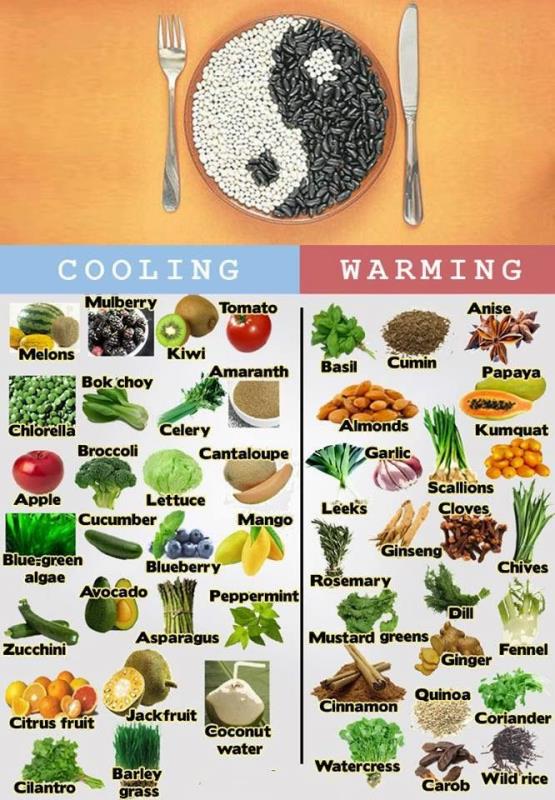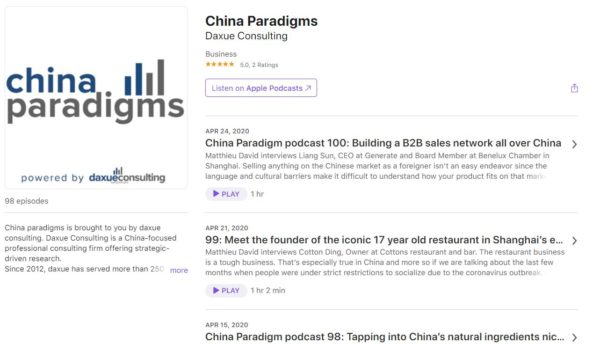With the development of economy, Chinese pay more attention to their health and are willing to pay more on health products. Correspondingly, health perceptions in China are becoming more scientific and the country is rapidly becoming the world’s largest market for healthy eating.
Daxue consulting conducted a survey to learn more about the promising wellness market in China. This survey aimed to understand changing health perceptions in China, including health knowledge, dietary habits, and familiarity with health trends and diets. The data collected stems from 747 respondents, 83.65% of them under 30 and 71.62% of them from tier 1 and tier 2 cities.
From this survey, it is evident that Chinese scientific understanding of health and nutrition are improving. A majority of respondents were able to correctly distinguish which nutrients are healthy; despite they are still unfamiliar with some less-used elements like trans-fat and Omega-3 fatty acid. Young Chinese tend to believe their own daily routine and eating habits are unhealthy, signaling that there is recognition of where they can improve their health.
This leads us to believe that there is room for health-related products or diet trends to enter the country. However, according to the survey, meal replacement and Keto diet, two popular health topics on Chinese social media, many respondents are still skeptical and would like to see more proof of effectiveness before experimenting with diet trends.
Chinese health perceptions: what is considered “healthy” in China
In a world with a wealth of information on the internet, some of it accurate, some of it not, much of it conflicting, there is a myriad of ideas about what is healthy. Our aim is to understand not just whether Chinese consumers are making healthy lifestyle decisions, but what they actually consider to be healthy.
It’s not surprising to see that most people recognize protein and dietary fiber are healthy. Compared with other nutrients, these two have the strongest recognition, over 30% of people consider them very healthy. What is surprising, is respondents’ opinions on added sugar (not to be confused with natural sugar in fruit), something that is widely recognized as unnecessary to the diet in the west, has a relatively neutral perception in China, with only around 22% of respondents saying it is unhealthy.
The role of fats vs. carbs in the Chinese mindset
On a similar note, 13.8% of respondents were not familiar with trans-fat, but for those who were familiar, have relatively healthy perceptions of it. Trans fats are recognized as a dietary hazard in the west, as they are a type of fat that the body cannot burn. However, around 35% of our Chinese survey respondents saying they believe Trans fats are either neutral or healthy. It is likely that many people have heard of trans fats but are unaware of how they impact the body.
Fat vs. carbs are often pit against each other as culprits of weight gain. While some advocate for low-carb and high-fat diets (the keto diet, for example), on the contrary, many would argue that fat causes health problems and carbs are a necessary staple. A population’s belief towards fat and carbs shapes to what extent certain diet trends can influence the population. Based on our survey, China is not an ideal setting for the globally trending keto diet, as carbs are perceived as healthier than fat.
In addition, although the sales growth rate of Omega-3 products like fish oil in China (11.4%) was expected to far exceed the current market leader, the United States (0.2%) in 2018, only 60.11% of the respondents know what Omega-3 fatty acid is. However, the growth trajectory in awareness of specific nutrients is promising for China’s vitamin market.

Data source: daxue consulting survey on health perceptions in China, Chinese perceive health level of specific nutrients
What drives Chinese dietary choices
Flavor rules all
What Chinese think is important when buying snacks and beverages is similar. Flavor is the most influencing factor that over 90% of Chinese view it important. For most Chinese, even when they know some food is unhealthy, they will still be crazy about the food so long as it is delicious. Besides flavor, price is the second most important criteria.
When following up with survey respondents, we found that while young Chinese prefer affordability, parents and grandparents prefer snacks with higher prices. This is because themselves seldomly eat or drink snacks or beverages, rather, most of the time they buy them for their children or grandchildren. In their minds, higher price means better quality and relatively less unhealthy, and they want to provide the best to their children.

Data source: daxue consulting survey on health perceptions in China, most important factors when buying snacks among Chinese, respondents chose top three.
Likewise, almost 99% of the respondents consider fried food, street food and cured meat product unhealthy. However, fried food still has one of the highest sales in takeout apps like Meituan. Street food is now everywhere especially during the post-Covid-19 era as the central government has relaxed registrations on floating vendors to ease economic pressure for them caused by Covid-19. Cured meat products are a usual dish in family meals, and a must-have during the New Year Festival.


Data source: daxue consulting survey on health perceptions in China, which foods and are considered healthy among Chinese
Meals for Chinese: A contradiction between perception and practice
Although 63.59% of Chinese think breakfast is the most important meal during the day, only 6.43% of them eat the most at breakfast and 62.92% of them even frequently miss this meal because of their busy schedules.
Chinese people’s fast-paced life is one of the reasons behind the contradiction between perception and practice. As a result, most have too limited time in the morning to prepare a hearty breakfast. That’s also why there are thousands of blogs and videos on social media apps like Xiaohongshu and Tik Tok teaching people how to cook a delicious breakfast in a very short time.

Data source: daxue consulting survey on health perceptions in China, Chinese perceptions on the importance of meals
Influence of traditional Chinese medicine on health perceptions
Traditional Chinese medicine (TCM) has had a profound influence on Chinese health perceptions and diets. Over a half of the respondents believe in traditional Chinese medicine and use it in their daily life. One example is that traditional Chinese medicine encourages people to eat hot food and avoid eating cold or uncooked food. In the survey, only the minority of respondents disagree with this. In practice, a hot chicken soup or meat porridge is considered beneficial to the body and is often offered to hospital patients. Additionally, 59.71% of them agreed that the balance food with yin and yang qualities (or cooling and heating qualities), a concept in traditional Chinese medicine, is of great importance in their daily diet.

Source: Pinterest, healthy food which contain yin and yang, or heating and cooling qualities.

Data source: daxue consulting survey on health perceptions in China, Chinese perceptions of TCM’s impact on health
Younger Chinese have worse perceptions of own health
Though it is a subjective observation of self and not representative of actual health level, understanding how respondents evaluate their own health shows to what extend they believe they can improve or change.
42.72% of the respondents who are under 30 believe they are healthy. However, the young Chinese evaluate themselves as having worse daily routine and eating habits no matter whether they believe they are healthy or not. 67.8% of the people who are under 30 and consider themselves healthy think they don’t have a healthy daily routine and 72.7% of them often miss a meal because of work or study. Moreover, 94.7% and 88.5% of the people who are under 30 and consider themselves not healthy think they don’t have healthy daily routine and eating habits correspondingly.

Data source: daxue consulting survey on Chinese health perceptions, participants’ subjective evaluation of health-level of own routines
Limited influence on Chinese perceptions caused by Covid-19 pandemic
It is natural to think that during the Covid-19 pandemic, people are going to pay more attention on their health and try to fix bad health habits. Contrary to this assumption, in the questionnaire, only around 10% of the respondents have changed their daily routine and eating habits to be more healthy ones because of the Covid-19 pandemic. But Covid-19 does have a positive influence on Chinese health awareness that 42.97% of the respondents have enhanced their health awareness due to it, and this enhanced health awareness may continue to push changes in the long term.

Data source: Daxue consulting Chinese health perceptions survey, self-evaluation of how Chinese people change during the Covid-19 pandemic
Chinese opinions on popular health trends
Meal replacement and keto are two globally popular trends. Compared with the keto diet which only half of the respondents have heard of, meal replacement is more widely-known, to the extent that 93.97% of people have heard of it and 26.37% of them have a relatively good understanding of it. This may because of the rapid increase in meal replacement products and their promotion.
Although these two trends have been so hot in social media like Xiaohongshu and Weibo, only 38.94% and 17.01% of all the respondents have ever tried meal replacement and keto diet correspondingly. Moreover, 57.32% of the respondents who have heard of meal replacement consider it unhealthy and 86.06% of them think it has a weak or no effect on losing weight. Similarly, 71.85% of the respondents who have heard of the keto diet view it as unhealthy and 58.36% of them don’t think it can help keep fit. Most posts about meal replacement and Keto diet in social media focus on the product recommendations and sharing experiences. Scientific data or proof for meal replacement and keto diet are seldom shared on Chinese social media. This may lead to Chinese’s lack of confidence in these new health products.

Data source: Daxue consulting survey on health perceptions in China, Meal replacement Vs Keto diet
Health awareness in China is increasing
The increased health awareness of Chinese will evoke the rapid growth of numerous wellness-related markets like the Chinese fitness market. The revolution of health perceptions in China will also require the corresponding change in brands’ marketing strategies in order to reach Chinese customers.
Here is what brands should know about wellness marketing in China
- Education is key. From the survey, we can see that many Chinese are not aware of certain nutrients such as Omega-3 fatty acids, or even have misunderstandings, such seeing Trans-fat as being healthy. Therefore, it is important for health brands to communicate to consumers why their product is healthy, what nutrients are in it, and what their purpose is.
- Convenience is important for young, busy consumers. Most Chinese believe breakfast is the most important meal, yet many skip it due to being too busy. As a result, videos and blogs about easy-to-prepare meals are going viral. Brands can tap into this by making their products more convenient, or marketing them through videos on how to cook quick meals with them.
- Understand the role TCM plays in Chinese health perceptions, and how it will impact the views of products. For example, raw vegetables are not perceived as healthy as cooked vegetables, leaving little room for the paleo diet which is centered on raw vegetables. Food temperature is also important to Chinese. A product that is meant to be served hot, like a soup, may do better than something meant to be served cool, like a salad.
Learn something new? Stay updated on the Chinese market by following our WeChat, scan the QR code below, or subscribe to our newsletter

As health awareness improves, so does the vitamin and health supplement market. See our VDS report below
Listen to over 100 China entrepreneur stories on China Paradigms, the China business podcast
Listen to China Paradigm on Apple Podcast






